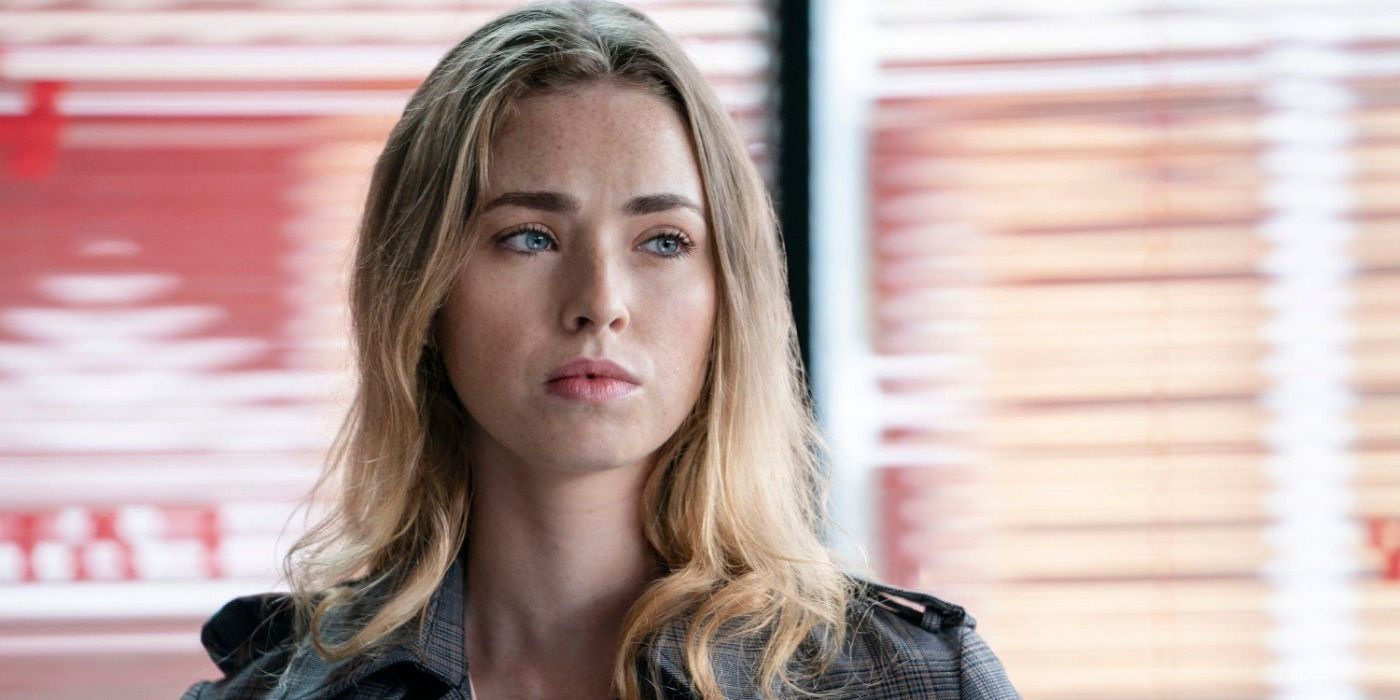The Big Picture
- Fair Play and Industry are both tense relationship dramas that explore the toxicity and misogyny of corporate culture in the financial sector.
- Industry features a more diverse ensemble cast than Fair Play, highlighting the complex dynamics between ambitious twenty-somethings grappling with privilege, racism, and sexism.
- Both shows showcase the cutthroat and toxic culture of financial institutions, reminding us that coming from privilege doesn't exempt one from prejudice, and having diversity in positions of power doesn't guarantee change.
The thriller Fair Play, now streaming on Netflix, stars Phoebe Dynevor and Alden Ehrenreich as Emily and Luke, a young couple working at a cutthroat New York City hedge fund. They keep their relationship a secret at work, but when Emily gets an unexpected promotion that was rumored to go to Luke, their relationship hits the rocks. Fair Play is a tense relationship drama as well as an indictment of the misogyny that remains pervasive in corporate culture despite recent progress, similar to the premise and social commentary found in HBO's workplace drama Industry. Industry follows four recent college graduates vying for a permanent position at Pierpoint & Co, a London-based investment bank firm with a similarly high-pressure environment as Fair Play's One Crest Capital. While the toxic corporate culture of the financial sector is used as a backdrop and something that drives a wedge between Emily and Luke's relationship, Industry's first two seasons take a broader look at the lives of a group of ambitious twenty-somethings with plenty of sex, drugs, and juicy interpersonal conflict. With a more diverse ensemble cast than the two white protagonists in Fair Play, Industry also highlights the complex relationship dynamics between the four candidates and the larger Pierpoint staff, grappling with misogyny, racism, economic and educational privilege, and the pressures of climbing the ladder in a fiercely competitive industry.
'Industry' Is Full of Complex and Problematic Characters
Industry's pilot episode introduces five graduates — Harper (Myha'la Herrold), Yasmin (Marisa Abela), Robert (Harry Lawtey), Gus (David Jonsson), and Hari (Nabhaan Rizwan) — who have six months to prove their worth to Pierpoint and secure a permanent spot. Hari however, doesn't make it past the first episode. He dies from a heart attack in the Pierpoint bathroom trying to prove his commitment to the role by working non-stop, sleeping at the office, and relying on energy drinks and stimulants to keep him going. Pierpoint executives briefly acknowledge his death without calling attention to the unhealthy company culture that normalizes overwork, especially for those at the bottom trying to prove themselves. This sets the tone for the rest of the show, providing an initial glimpse into the ways Pierpoint prioritizes profit over the physical and mental well-being of their employees.
Our main protagonist Harper sticks out as the only American of the bunch, lacking the prestigious British educational background of Yamsin, Gus, and Robert, and even lied about graduating from college to secure her spot at Pierpoint. Yasmin comes from a wealthy Lebanese family, whose privileged background and fluency in several languages give her a leg up. Gus also comes from money, the son of a Ghanaian ambassador who attended Eton and Oxford, but struggles to stand out at Pierpoint after Hari's death. Though Robert also graduated from Oxford with Gus, he comes from a working-class family and lacks the confidence that comes so easily to some of his colleagues.
Privilege and Power in 'Industry' Is a Main Theme
The diverse group of young graduates contrasts the largely white, male Pierpoint staff, and their attempts to impress their bosses highlight the sexism, racism, and classism that persists in the company culture. Temperamental CPS managing director Eric (Ken Leung), takes a liking to Harper and even covers for her when he finds out she never graduated from college. As a fellow person of color who doesn't come from privilege, Eric empathizes with her position and takes her under his wing, despite exhibiting some inappropriate behavior in the process, like locking her in a conference room. Yasmin struggles to earn the respect of her line manager Kenny (Conor MacNeill), also from a working-class background, who views her as a spoiled princess whose success he attributes only to her looks and family connections. In Season 1, he's openly sexist, berates and disrespects her, and puts her in an inappropriate sexual situation during an outing with a potential client. This leaves Yasmin at a crossroads, torn between filing a formal complaint or keeping quiet to avoid rocking the boat and securing her a permanent spot at Pierpoint.
Robert, the only white man of the four graduates, might theoretically fare better than his counterparts thanks to the inherent privileges that come with his identity, but he still feels like a fish out of water at Pierpoint because of his economic background. His manager Clement (Derek Riddell) had a similar upbringing and therefore looks out for Robert despite his own declining relevancy at Pierpoint. Gus, who was desk mates with Hari, is left in limbo when the IBD desk is disbanded. Despite his lack of impact at the company, Sara (Priyanga Burford), the President of Pierpoint London, assures Gus of her intentions to change the culture at Pierpoint to a more inclusive one. As a Black man, who she refers to as a "hyper-intelligent minority," it would behoove Sara to keep him at Pierpoint. He's tokenized, used for promotional materials and photo ops, but left by the wayside on the sales floor. Sara makes a similar appeal to Harper, the only Black woman at the Pierpoint office, but Harper realizes she's being used as a pawn by Sara and her line manager Daria (Freya Mavor).
Created by Mickey Down and Konrad Kay, two former bankers themselves, Industry doesn't shy away from showing the cutthroat, toxic culture of financial institutions like the fictional Pierpoint. In the past decade, companies of all kinds have made strides towards creating more inclusive workplaces, but the dynamics presented onscreen in Industry is a reminder of the many prejudices that continue to impact women and people of color in the workplace. At Pierpoint, coming from privilege doesn't exempt you from racism and misogyny, and at the same time, having women and people of color in positions of power doesn't guarantee a change of the status quo. One moment most indicative of this takes place in the Season 1 finale after Robert's questionable presentation on RIF day. Despite his lackluster performance on the floor, as the Pierpoint executives discuss his fate, one suggests that there are certain clients who would easily get on with "that kind of guy."
There's Plenty of Drama To Go Around in 'Industry'
With Season 3 in the works, now is a good time to catch up on one of Max's most compelling workplace dramas now that Succession has come to an end. There's plenty of sex, drugs, and interpersonal drama that make Industry worth a watch even for those who aren't too familiar with the world of investment banking and its jargon. Its complex and often unlikable characters and their respective issues make for some of the most interesting plot lines. Frenemies Harper and Yasmin form an ambiguous love triangle with Robert, who has a sexual relationship with Yasmin but also has chemistry and flirtatious banter with Harper. Gus has an on-and-off sexual relationship with a married man at Pierpoint in Season 1 but makes significant life changes in Season 2.
With plenty of personal drama to go around, the fancy dinners, drug-fueled parties, and steamy sex scenes balance out the sometimes hard-to-follow meetings at the Pierpoint office. Despite the high-stakes situations the characters find themselves in, Industry isn't totally devoid of comedy either. Jackie (Caoilfhionn Dunne), VP of the FX desk, can often be heard having some particularly foul-mouthed phone conversations in the background, while the high energy market maker Rishi (Sagar Radia) provides endless quips on the trading floor ("Is anyone here young enough to give a fuck about meme stocks?"). With Season 2 released in 2022, Industry chose not to ignore the COVID-19 pandemic like Succession did, and instead seamlessly incorporated it into the plot, allowing for the introduction of new characters. Netflix's tense thriller film Fair Play is just a small glimpse into the relentless world of investment banking across the pond in the first two seasons of Industry.




